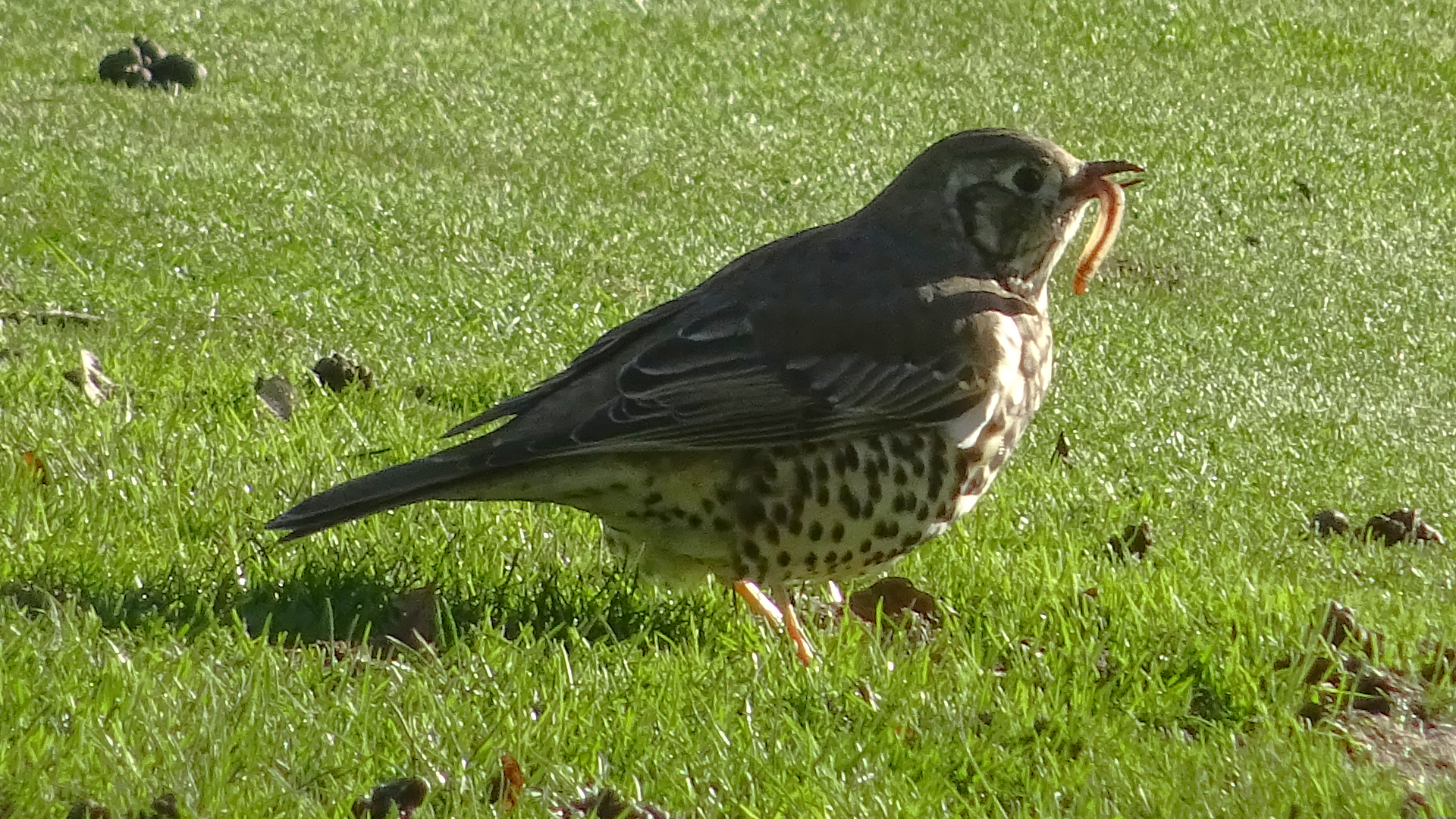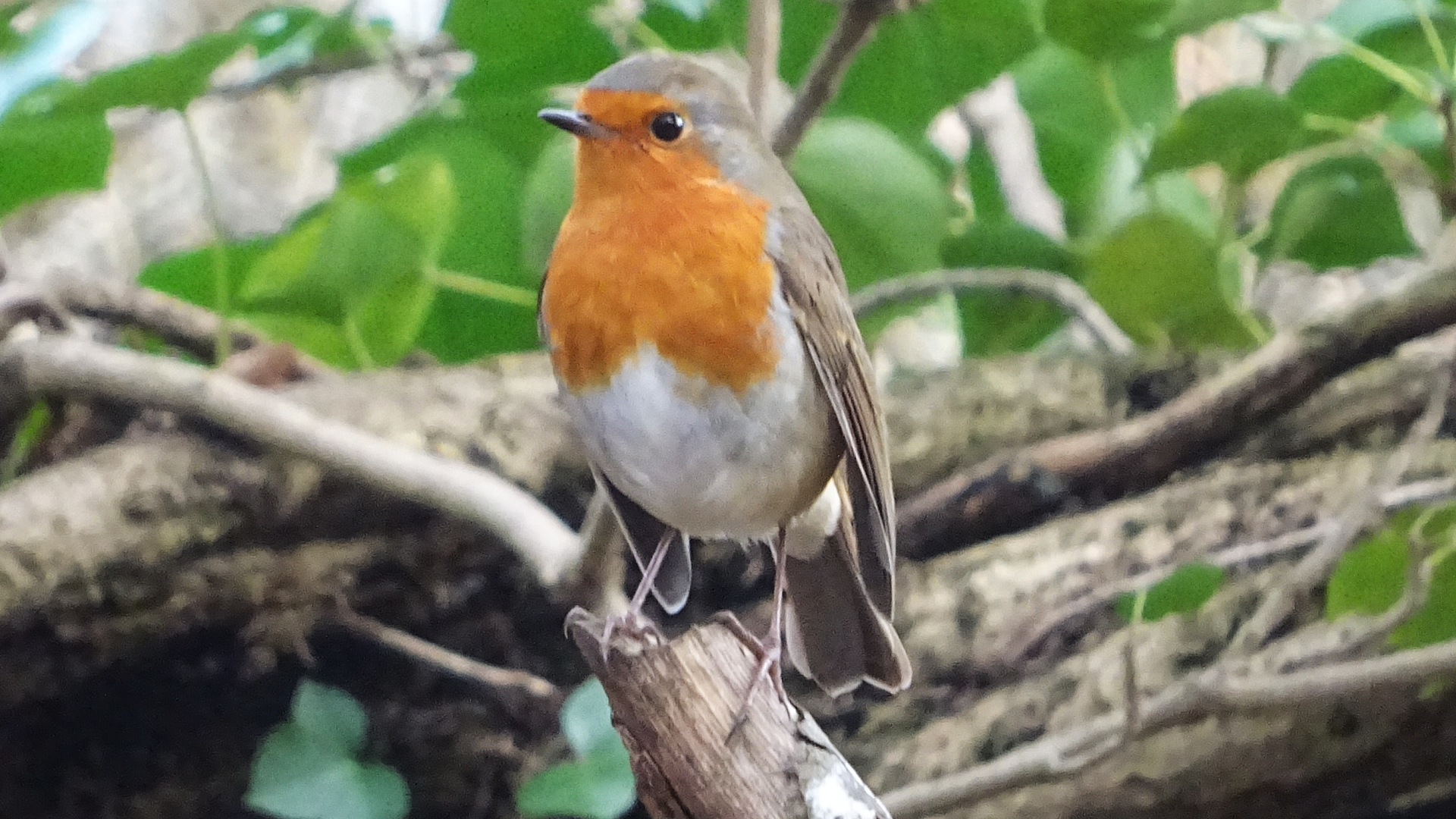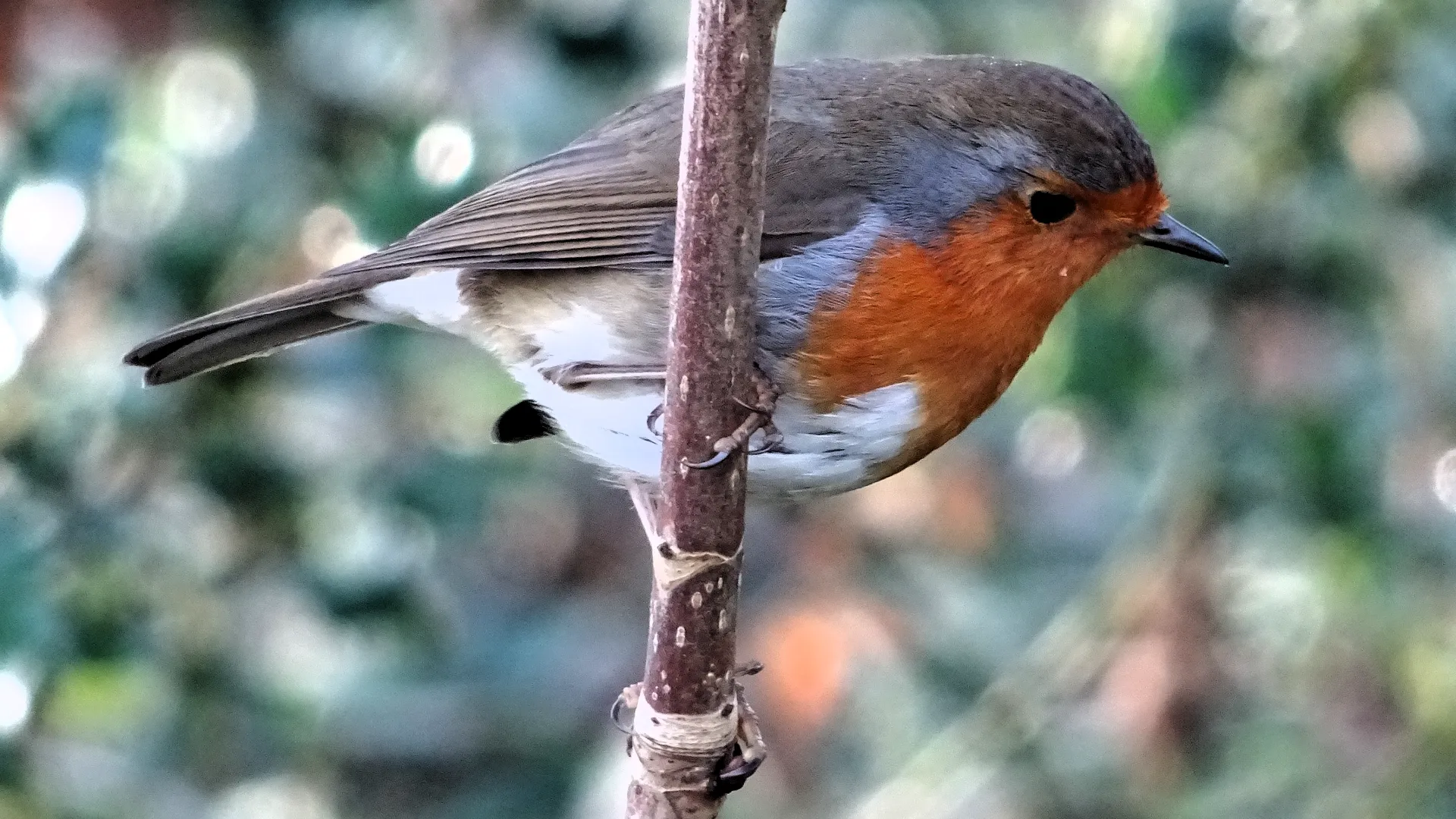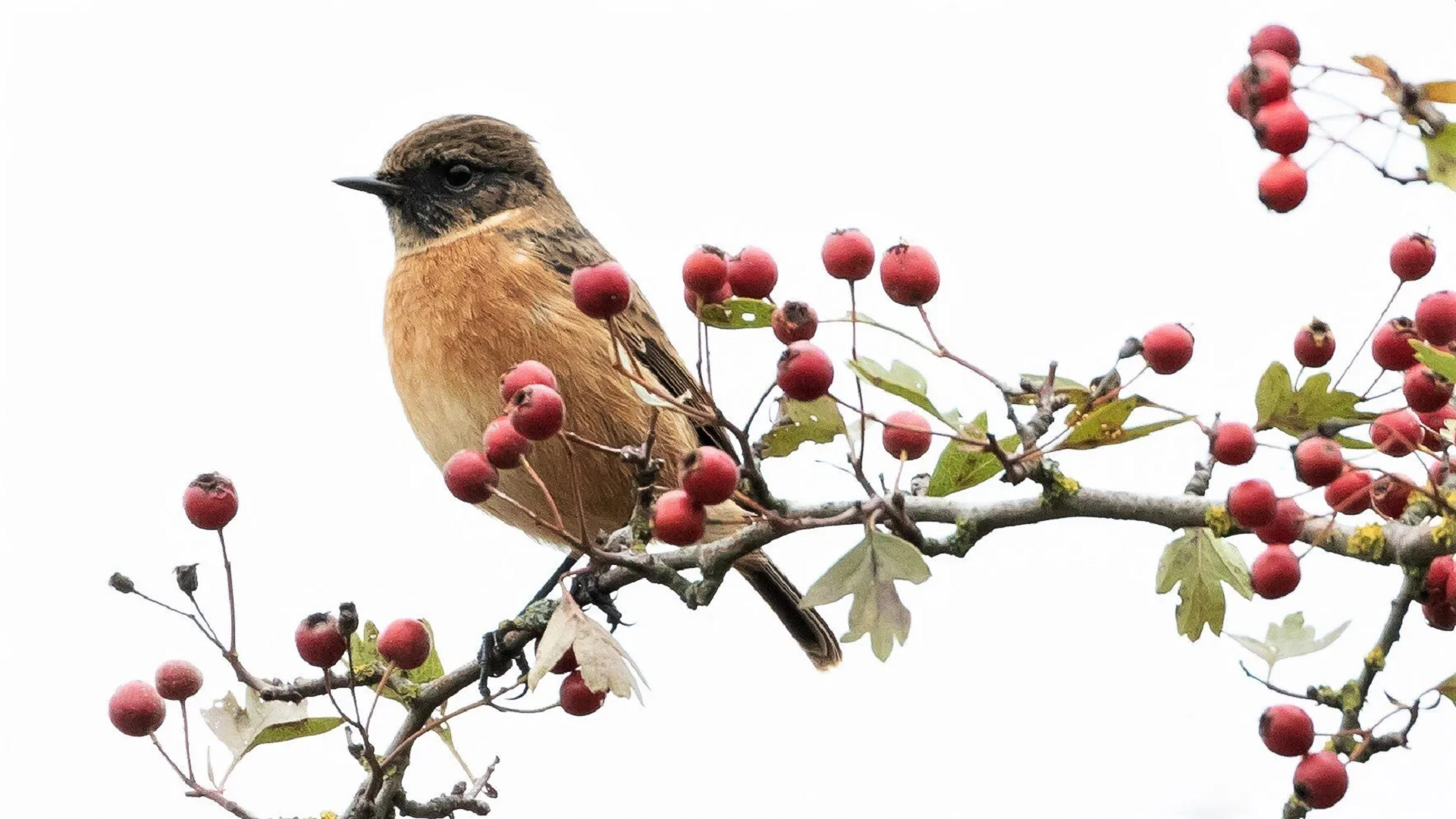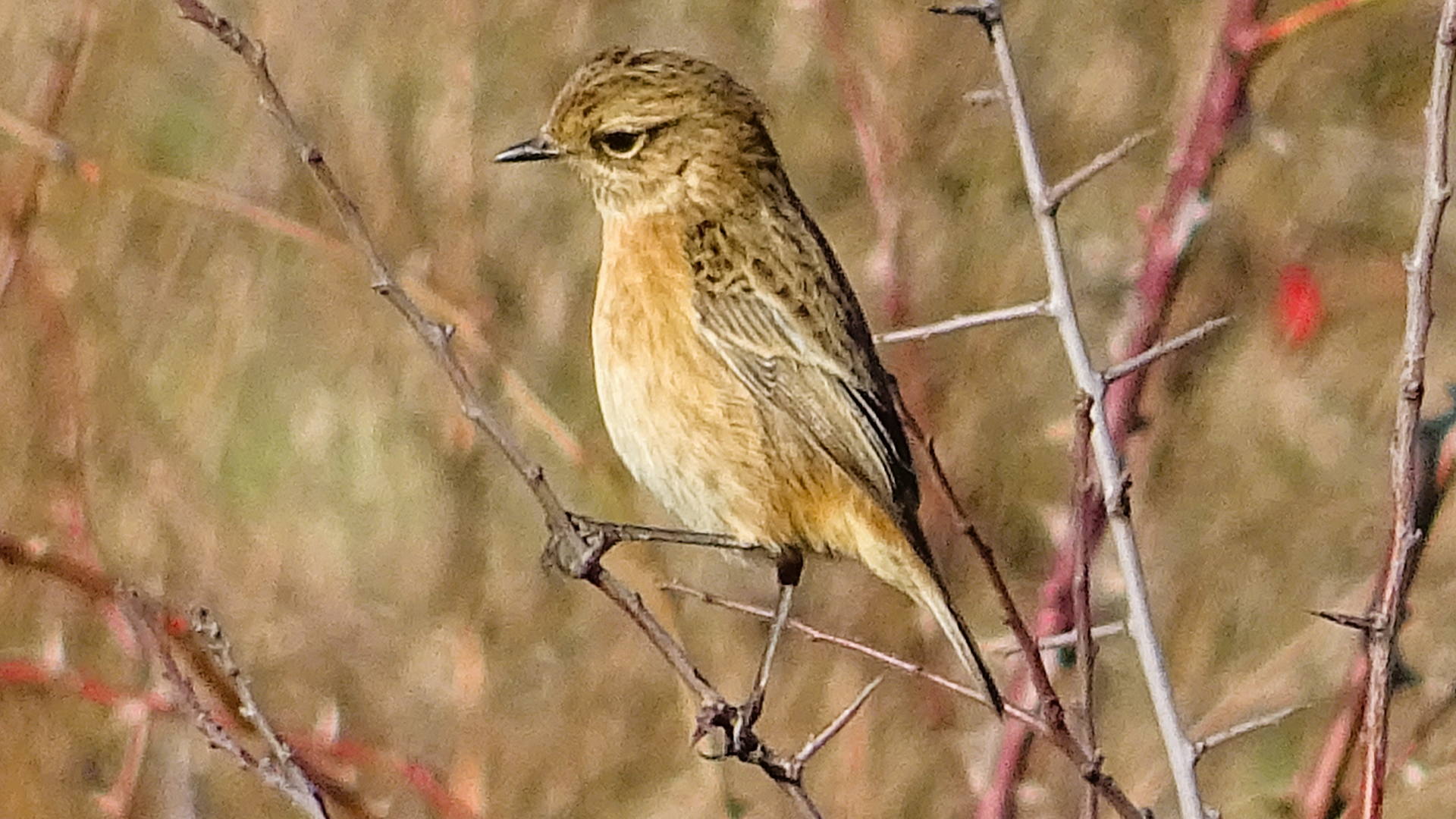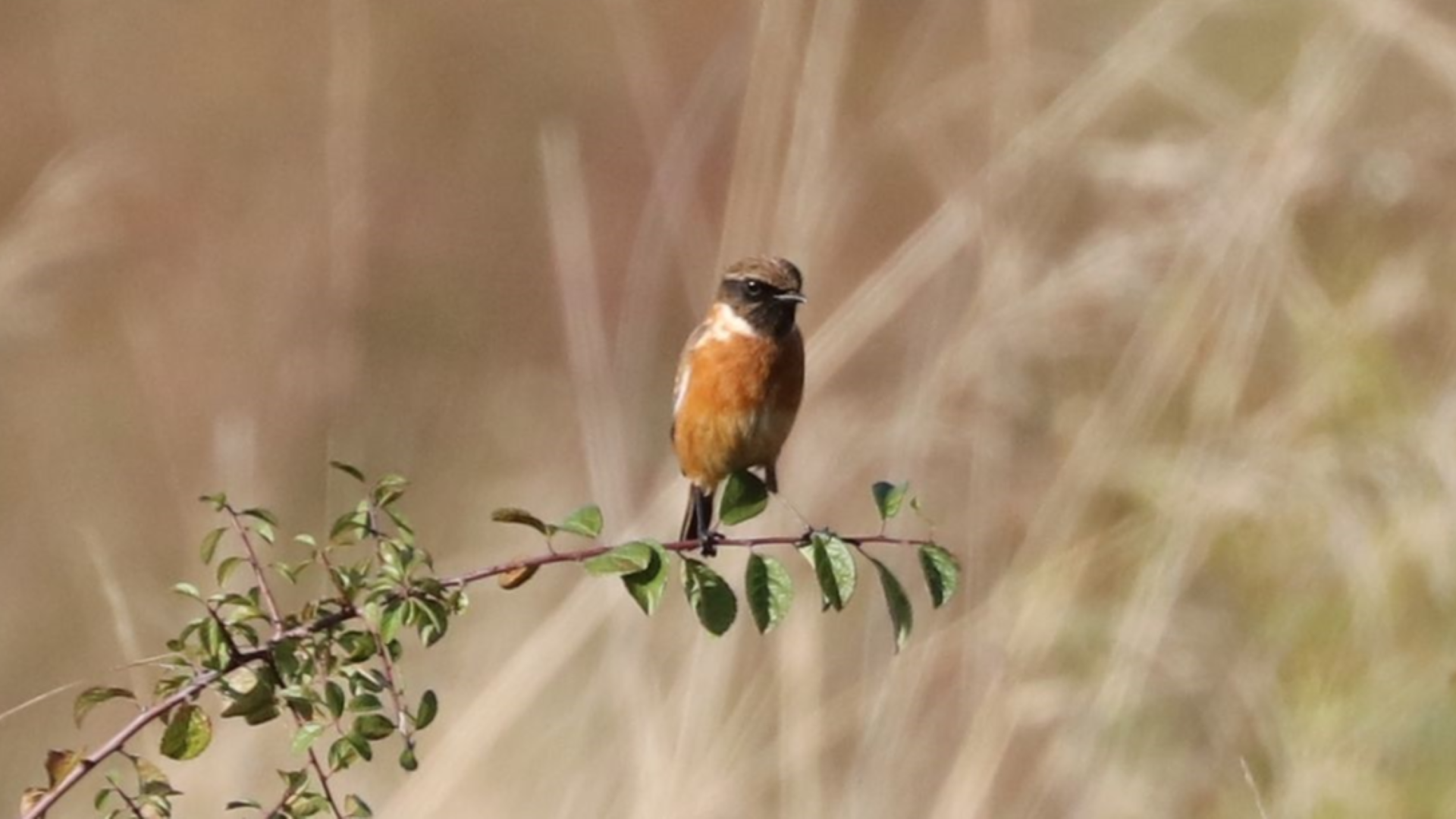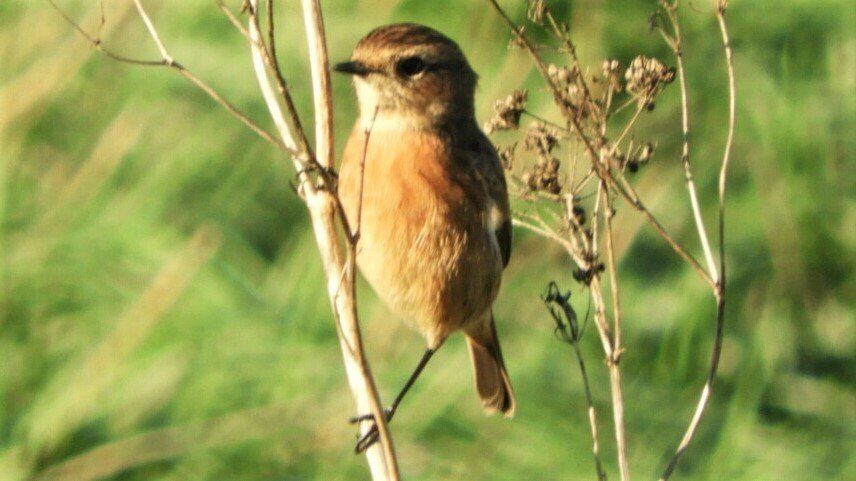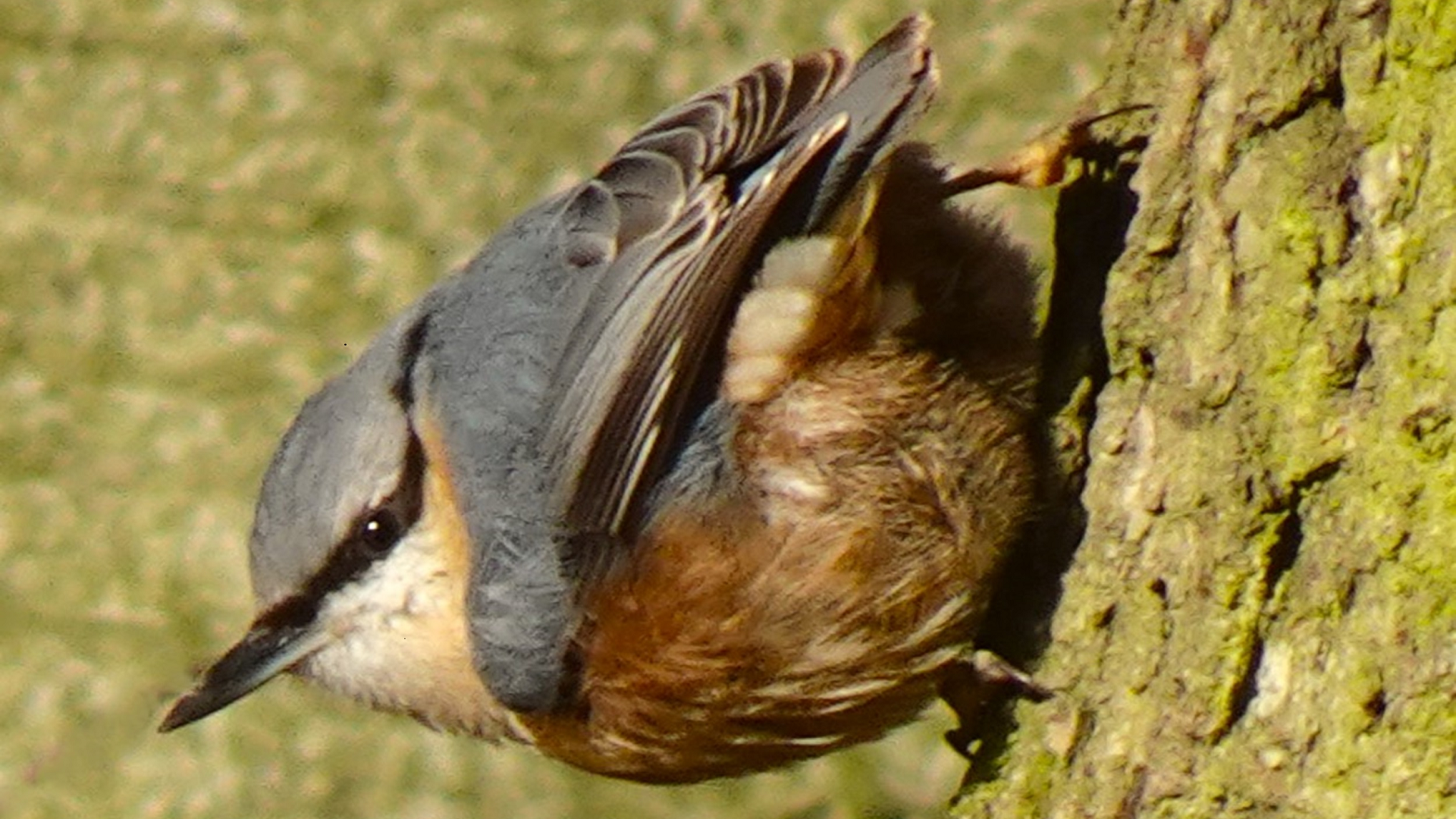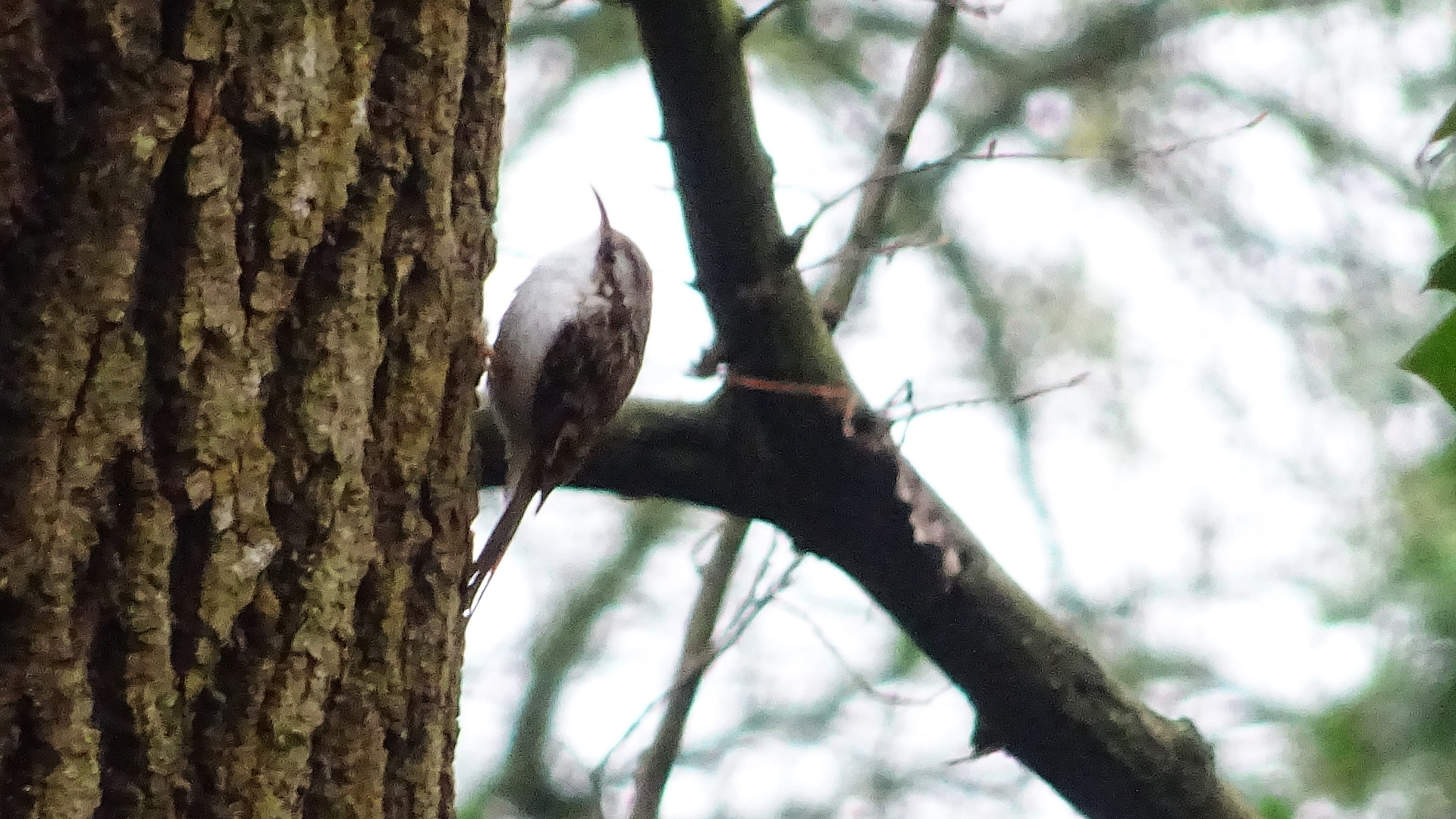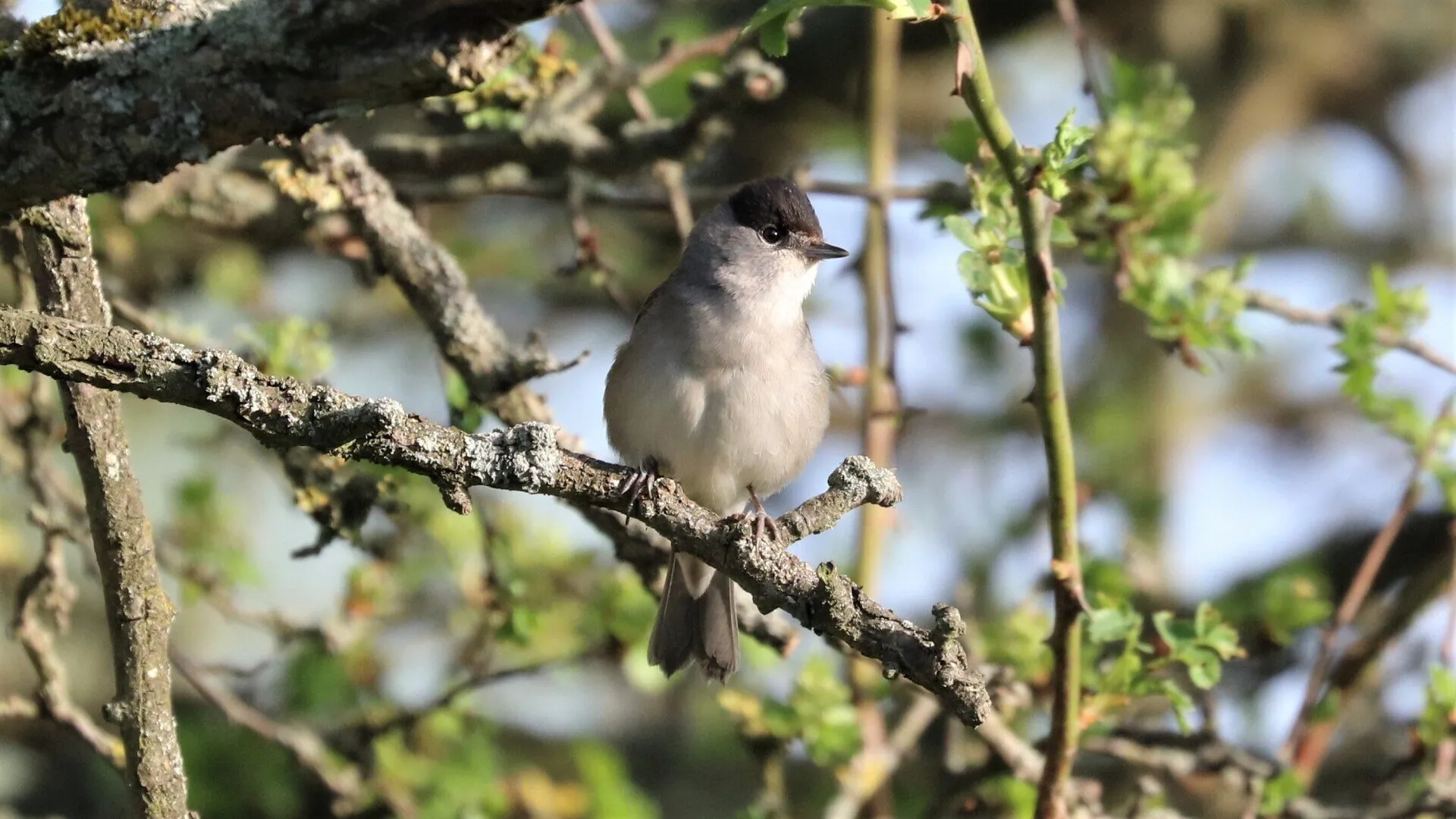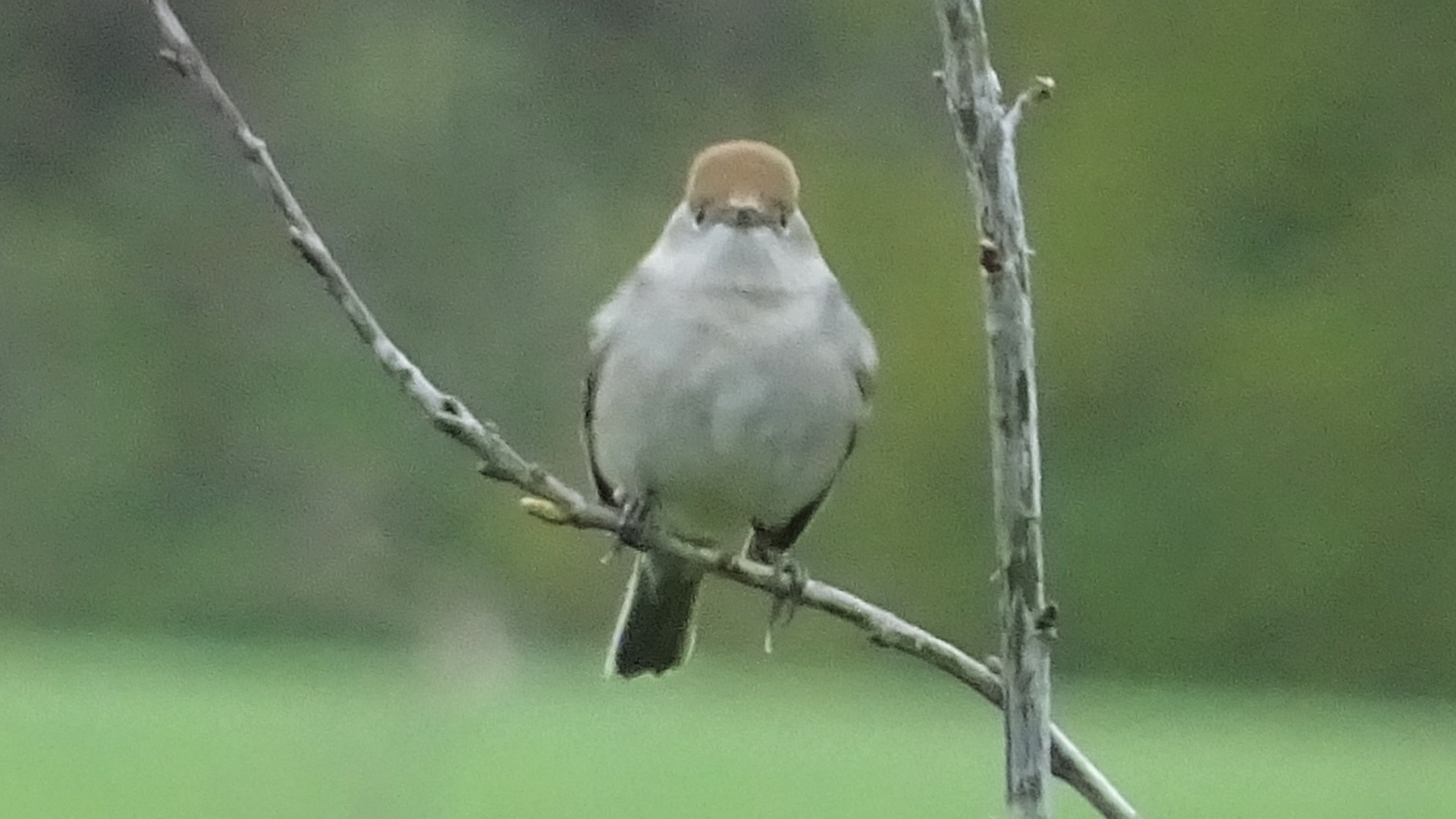OTHER BIRDS
Mistle Thrush is so-called because it is one of the few birds to feed on mistletoe berries. Although mostly vegetarian it is sometimes seen hopping on the ground searching for worms and insects. This is the largest British thrush and white tips to the outer tail feathers helps distinguish it from the others. They are sometimes referred to as 'Storm Cocks' because they continue singing through storms.
Robins sing throughout the year. They are friendly towards humans, but become aggressive towards other birds that intrude upon their territories. They feed upon seeds, fruit, insects, worms and other invertebrates.
The male Stonechat has a black head, brown back, black throat, a white half-collar and an orange-red breast. Females and juveniles are paler than males.
The Nuthatch is a resident woodland species that rarely travels far from its hatching site. They feed on nuts, acorns, seed and insects.
Treecreepers are tiny birds usually seen climbing tree trunks as they search for insects to pluck from underneath bark with their curved bills.
The female Blackcap has a chestnut brown cap allowing it to be distinguished from the male which has a black crown. They belong to the Warbler family and are normally summer visitors from Europe, but now more are staying in Britain over winter. Blackcaps feed on insects and berries.
Kingfishers are infrequent visitors to Hainault Lake. They are usually spotted sitting on branches near the water waiting to swoop down on fish, or as a blue flash flying low over the water's surface. They breed in holes near fresh water.
Wrens are the most common breeding bird in Britain. They are tiny brown rounded birds that have a pale stripe over the eyes, fine bills and fairly long legs and toes. Males and females are similar in appearance.
© hainaultforest.net. All rights reserved.



